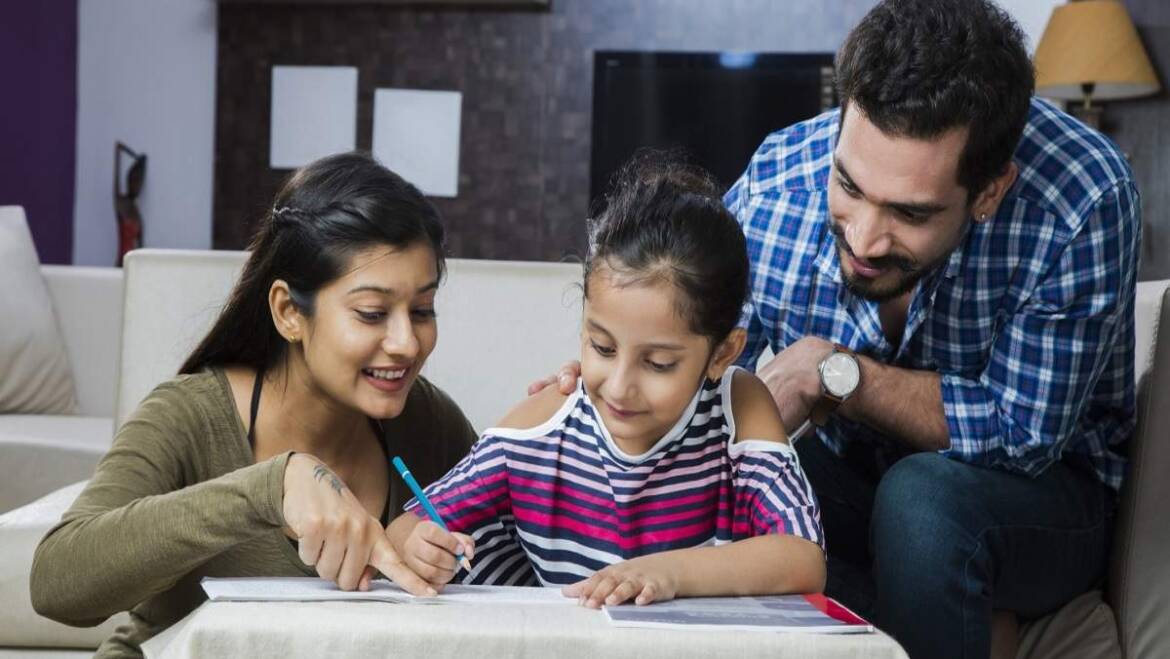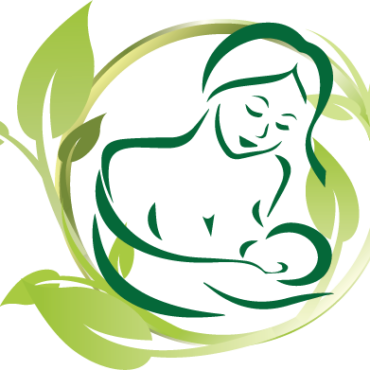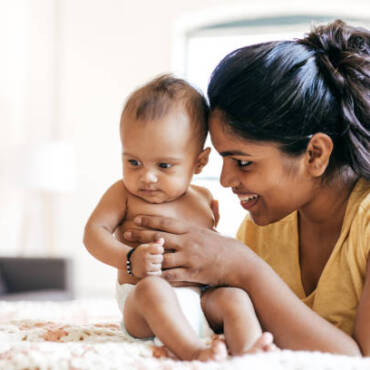When we think of our children, all of us want to do our best for our children because that is the best thing in our life. But everyone does it differently because there is no uniform definition of perfection. Most of us while dealing with our children try to achieve best by focussing on their diet, appropriate growth, regular medical checks and vaccinations and treating minor illnesses. As a paediatrician in my practice for last 25 yrs., common reasons for coming to my clinic are minor concerns like fever/rash/mild running nose, cough etc but nobody asks about what more can I do for training my infant better. Apart from it, while coming to train a baby, we often find ourselves at loss – where to start, what to teach, how to continue, is there an end. In fact, when we see our baby who is hardly few days/weeks old, we can’t even imagine that this little baby who can’t even take care of his feeding, movement etc by himself, will be capable of learning what I teach now .
Most of us understand / believe by our conventional training that learning starts at age of 3-5 yrs. when baby is capable of understanding/ communicating his basic needs and that is the right time for starting education. Experts will even say that child starts learning at later age by employing his own logic/understanding.
Early childhood education is a term that refers to the period from a child’s birth to when they enter kindergarten, according to Dr. Jessica Alvarado, academic program director for the BA in Early Childhood Development at National University in USA. According to Alvarado, it is an important time in children’s lives because it is when they first learn how to interact with others, including peers, teachers and parents, and also begin to develop interests that will stay with them throughout their lives. But Alvarado says it’s a common misperception that early childhood education is only about learning basic skills. “It’s so much more than that,” she says. “It’s a time when children learn critical social and emotional skills and a partnership is formed between the child, their parents and the teacher. When this is done successfully, it lays the groundwork for it to continue throughout the child’s education.”
Early childhood care and education (ECCE) is more than preparation for primary school. It aims at the holistic development of a child’s social, emotional, cognitive and physical needs in order to build a solid and broad foundation for lifelong learning and wellbeing. ECCE has the possibility to nurture caring, capable and responsible future citizens.” The goal of holistic education is to cultivate a developing child’s physical, emotional, moral, psychological, and spiritual attributes.
How to do it
As a parent you can never forget the first look, the first touch, the first smile of your baby for a lifetime We all know that mindful parenting is the key to wholesome development of our little angels. But a million dollar question is – how to do it, is there a fixed curriculum . how to get ourselves equipped with essential training to parent our baby in the best possible way.
Here we are providing some tips for young parents for bringing up their children in holistic way.
Spending quality time with your children with total involvement with love is the key at all ages.
Newborns and infants 0-1yr of age)
Parents who have babies in first 2 yrs of age have the golden opportunity to lay down the foundation in a conscious manner for their kids as this is the most powerful period in terms of learning. Babies during this time absorb all the impressions from the universe, parents and their environment to create their unique own path of expressing life on this earth.they are connected to the mind and emotions of their parents throughout their golden period.In the first year, babies learn to focus their vision, reach out, explore, and learn about the things that are around them. Cognitive, or brain development means the learning process of memory, language, thinking, and reasoning. Learning language is more than making sounds (“babble”), or saying “ma-ma” and “da-da”. Listening, understanding, and knowing the names of people and things are all a part of language development. During this stage, babies also are developing bonds of love and trust with their parents and others as part of social and emotional development. The way parents cuddle, hold, and play with their baby will set the basis for how they will interact with them and others.
Following are some things you, as a parent, can do to help your baby to learn during this time:
- Talk to your baby and try to listen to him/her. It should be a dialogue not a one-sided conversation.
- Bring your baby close to you and talk to him/her. He can see you better.
- Use lot of facial expressions and change in tone of your voice to communicate
- Answer when your baby makes sounds by repeating the sounds and adding words. This will help him learn to use language.
- Sing to your baby and play music. This will help your baby develop a love for music and will help his brain development.
- Praise your baby and give her lots of loving attention.
- Spend time cuddling and holding your baby. This will help him feel cared for and secure.
- Play with your baby when she’s alert and relaxed.
- Watch your baby closely for signs of being tired or fussy .You will become better by observing your baby and communicating to him/her with passing time
- Never be stressed/angry as baby is observing and learning closely from your action/behaviour.
Toddlers (1-3 yrs)
A toddler’s subconscious actively arranges the consolidated knowledge from previous phase, into templates of application. This is the period when a human being as a toddler, just coming out of infancy is still in the plane of imagination and cosmic projection. Since an active conscious mind is not yet developed, the toddler functions out of pure emotional essences and relies on parents for thinking skills. A toddler thrives in the world of his/her parents, while it parallelly builds a private world where it lives a wisdom consolidated within its spirit through constant ideation. The more holistic and resplendent this inner world, better the expressions and achievement of external milestones.Children reach age-appropriate milestones in how they play, learn, speak, behave, and move (like crawling, walking, or jumping). During the second year, toddlers are moving around more, and are aware of themselves and their surroundings. Their desire to explore new objects and people also is increasing. During this stage, toddlers will show greater independence; begin to show defiant behaviour; recognize themselves in pictures or a mirror; and imitate the behaviour of others, especially adults and older children. Toddlers also should be able to recognize the names of familiar people and objects, form simple phrases and sentences, and follow simple instructions and directions.
What we should do :
- Read a story to your toddler daily. Story telling is an art which every parent masters spontaneously as the journey of parenting progresses.
- Ask her to find objects for you or name body parts and objects.
- Play matching games with your toddler, like shape sorting and simple puzzles.
- Encourage him to explore and try new things.
- Help to develop your toddler’s language by talking with her and adding to words she starts. For example, if your toddler says “baba”, you can respond, “Yes, you are right―that is a bottle.”
- Encourage your child’s growing independence by letting him help with dressing himself and feeding himself.
- Respond to wanted behaviors more than you punish unwanted behaviors (use only very brief time outs). Always tell or show your child what she should do instead.
Encourage your toddler’s curiosity and ability to recognize common objects by taking field trips together to the park or going on a bus ride.
Preschoolers-(3-5 yrs) As children grow into early childhood, their world will begin to open up. They will become more independent and begin to focus more on adults and children outside of the family. Emotions begin to get processed and refined. Conscious mind starts developing in this phase. Child has more access to the world through the perception of parents and differences between “my world” and “the world” emerge vividly in their awareness. The inner world bens to dissolve through conflicts and contradictions. They will want to explore and ask about the things around them even more. Their interactions with family and those around them will help to shape their personality and their own ways of thinking and moving. During this stage, children should be able to ride a tricycle, use safety scissors, notice a difference between girls and boys, help to dress and undress themselves, play with other children, recall part of a story, and sing a song.
Few things to be done for pre-schoolers
- Continue to read to your child. Nurture her love for books by taking her to the library or bookstore.
- Let your child help with simple household chores.
- Encourage your child to play with other children. This helps him to learn the value of sharing and friendship.
- Be clear and consistent when disciplining your child. Explain and show the behaviour that you expect from her. Whenever you tell her no, follow up with what he should be doing instead. Children learn by observing more as compared to listening. Hence set up the best example for them by yourself
- Give your child a limited number of simple choices (for example, deciding what to wear, when to play, and what to eat for snack).
- Never impose your thoughts on them but guide them to the thoughts and science behind the given instructions.
- Give them the opportunities for independent decisions and give positive incentives for good decisions.
6-10 yrs of age
“Childhood brings out the seeker within the child”.. The dissolution of previously built inner world leads to questions and enquiry. The spirit within the human beings now seeks a new consolidation of knowledge with which it can attempt to rebuild its inner world. Now child has complete access to external human world.in this phase lots of questions awaken in heart with no definite answers. Higher the spiritual quotient, deeper is the questioning.
Middle childhood brings many changes in a child’s life. Events such as starting school bring children this age into regular contact with the larger world. Friendships become more and more important. Physical, social, and mental skills develop quickly at this time. This is a critical time for children to develop virtues, discipline , confidence, questioning and finding answers.
Following are some things you, as a parent, can do to help your child during this time:
- Show affection for your child. Recognize her accomplishments.
- Help your child develop a sense of responsibility—ask him to help with household tasks, such as setting the table.
- Talk with your child about school, friends, and things she looks forward to in the future.
- Talk with your child about respecting others. Encourage him to help people in need.
- Help your child set her own achievable goals—she’ll learn to take pride in herself and rely less on approval or reward from others.
- Help your child learn patience by letting others go first or by finishing a task before going out to play. Encourage him to think about possible consequences before acting.
- Do fun things together as a family, such as playing games, reading, and going to events in your community.
- Get involved with your child’s school. Meet the teachers and staff and get to understand their learning goals and how you and the school can work together to help your child do well.
- Continue reading to your child. As your child learns to read, take turns reading to each other.
- Use discipline to guide and protect your child, rather than punishment to make him feel bad about himself. Follow up any discussion about what not to do with a discussion of what to do instead.
- Praise your child for good behaviour. It’s best to focus praise more on what your child does (“you worked hard to figure this out”) than on traits she can’t change (“you are smart”).
- Support your child in taking on new challenges. Encourage her to solve problems, such as a disagreement with another child, on her own.
- Encourage your child to join school and community groups, such as a team sports, or to take advantage of volunteer opportunities.
We as parents learn and evolve as our children grow. Parenting is always a two- way process- give and take. It is an enjoyable journey if travelled in full awareness. As we look back at our life before and after being a parent , we often notice a major change in ourselves and that change is called EVOLUTION which is the purpose of our life.



